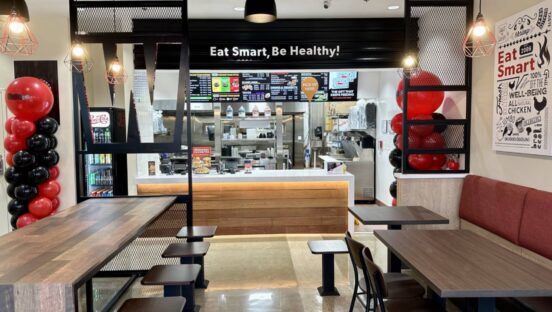Starbucks’ Teavana saga appears to have reached a resolution. The java giant and Simon Property Group agreed to a settlement regarding Starbucks’ decision to shutter its entire Teavana retail footprint. SPG, the country’s largest mall operator, sued Starbucks back in the summer when the chain first announced its plan to shutter all 379 of its Teavana stores. Then, in December, an Indiana federal judge ruled in favor of SPG, forcing Starbucks to keep 77 of its Teavana stores open, and to honor their leases. Marion Superior Court Judge Heather Welch sided with SPG and granted a preliminary injunction that also prevented Starbucks from conducting any going-out-of-business sales in those 77 locations. Starbucks filed an appeal against the preliminary injunction.
On December 19, the Indiana Supreme Court accepted Starbucks’ appeal, bypassing the state’s Court of Appeals in a rare turn of events.
“We’ve reached an agreement with Simon to settle our dispute,” Sanja Gould, a spokeswoman at Starbucks told The Wall Street Journal. “We are thankful to our customers who have enjoyed Teavana tea at these specialty retail locations and will continue to emphasize Teavana tea in new and different ways at Starbucks.”
Starbucks declined to provide closure dates and did not disclose terms of the agreement.
At the heart of the dispute was SPG’s claim that the lagging performance of Teavana stores was a matter of perspective. It said Teavana was not growing fast enough to fit into Starbucks’ overall business goals, but was doing just fine on its own.
“Starbucks’ decision to close its Teavana stores is simply an effort to further increase its economic gains at the expense of others,” Simon said in the suit, filed by Indianapolis-based law firm Barnes & Thornburg LLP. “Starbucks does not contend that Simon breached any lease or that Starbucks cannot remain viable if it continues to honor its promises in its leases for stores in Simon’s shopping centers. Instead, Starbucks simply believes it can make more money if it violates the leases than if it honored its contractual promises and obligations.”
Mostly, SPG contended that Starbucks’ Teavana stores, amid a retail backdrop of lagging companies, was not a low performer and should not be compared to other big-box retailers, like Macy’s and Sears, which are struggling.
Starbucks, on the other hand, continued to shoulder the burden in earnings statements. Starbucks CEO and president Kevin Johnson admitted to investors during a conference call in April that Starbucks “launched a review process … to take clear action to improve the performance of our Teavana mall store portfolio.”
The stores struggled through the holiday season and performed even worse through the second quarter than Starbucks predicated, resulting in the java chain labeling them “at-risk Teavana mall stores.”
As a whole, Starbucks has fought to regain foot traffic in recent quarters. It said during the fourth that it has sold more than $1.6 billion of Teavana beverages in Starbucks stores in the past 12 months. The company has no plans to remove it from in-store shelves; it just wants to exit malls.
Starbucks announced in November that it was selling the iconic tea brand Tazo for $384 million to Unilever so it could focus solely on Teavana. This would include entering the packaged tea category in 2018. Starbucks said it expects its Teavana business to represent over $3 billion over the next five years.







